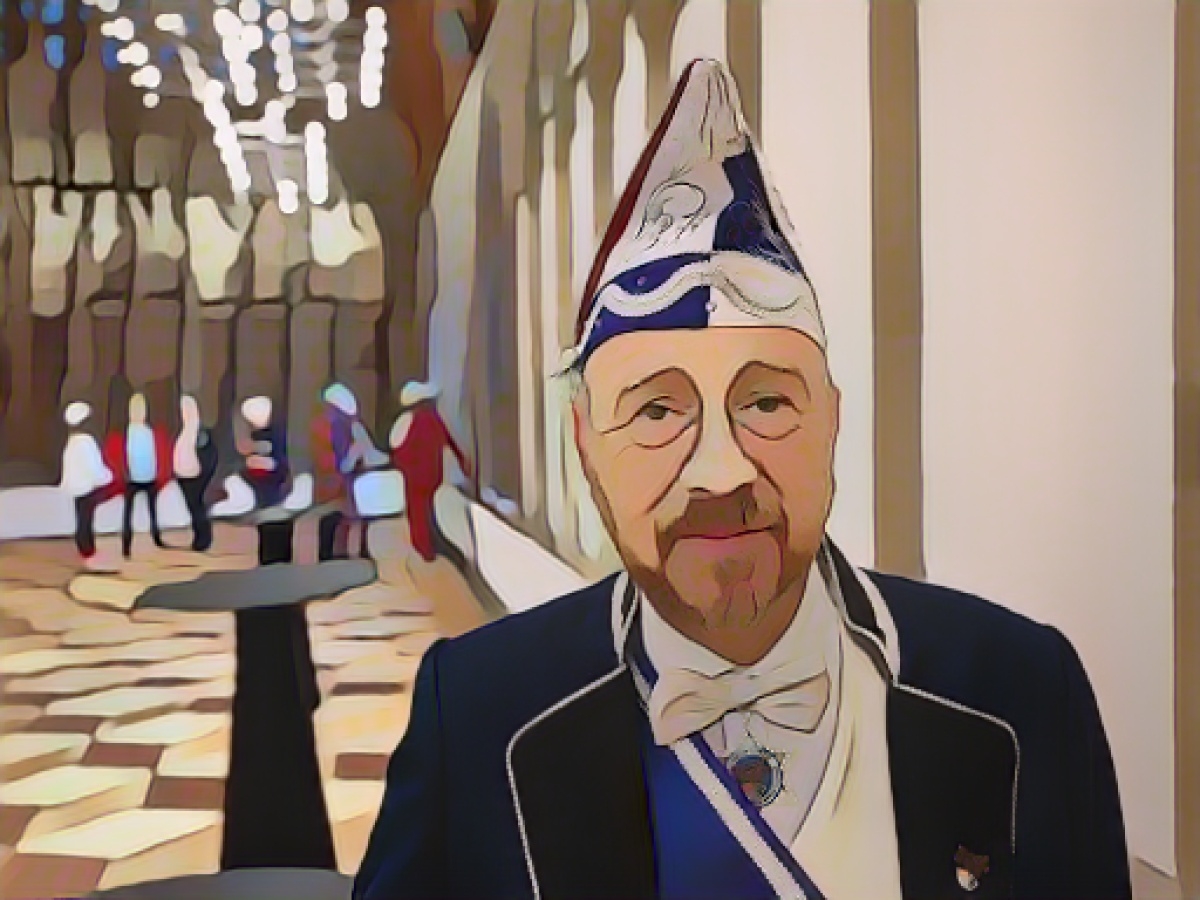Kölle Schalom - The story of Aaron Knappstein
"Kölle Alaaf! Kölle Alaaf! Kölle Schalom!" It is an unusual call that resounds on 11.11. in the Hansa Hall of Cologne's historic town hall. The leaders of the carnival have come together on this special day to open the new "session": the triumvirate of prince, farmer and maiden, the chairmen of the individual clubs, the president of the festival committee. But now Lord Mayor Henriette Reker has given the floor to someone who doesn't usually get to speak so often: Aaron Knappstein. President of the "Kölsche Kippa Köpp", the only Jewish carnival association in Germany.
Knappstein thanks us for allowing him to say a few words. "We Kippa Köpp and we Jews in this city are in need," he says. Since the Hamas attack on Israel, anti-Semitic incidents have also increased in Cologne. "You have to imagine for a second that someone is standing in front of you and telling you that you no longer belong in Cologne, that you are no longer a Cologne resident. You might smile about it the first time, but when you realize that there are two or three of them and the fourth or fifth says nothing, it's extremely difficult."
Are you allowed to be boisterous at all?
Is it even allowed to stand in the confetti rain, sing "Viva Colonia" and sway in times like these? Is it okay to have fun when the world is on fire elsewhere? "It's okay to celebrate carnival," says Henriette Reker almost imploringly on the large stage in the old town shortly before 11.11 am. "That doesn't mean that we don't think about those who are affected by war and violence."
11.11 in Cologne has developed into a mega-event in recent years - young people in particular travel from all over Germany to take part. The official carnival, which always wants to give the impression of sophistication, is not necessarily enthusiastic about this. But it cannot influence it. It's like a wave that rolls over the city. And as the day falls on a Saturday this time, the rush is particularly great.
But despite all the exuberance, there is a hint of melancholy about the hustle and bustle in places. "Are we allowed to celebrate?" asks entertainer Guido Cantz during the live broadcast from Cologne's Heumarkt on WDR television. "You can't just celebrate in difficult times - you have to," answers Willibert Pauels, carnival speaker and Roman Catholic deacon. "Humor and laughter are an oasis in the desert of fear. That's why, despite this incredible history of suffering of the Jewish people, the most exquisite humor to this day is Jewish humor."
Not as well attended as usual
Cologne's largest synagogue is located almost directly on the main party mile. Mayor Reker pays it a demonstrative visit on this day. "The synagogue was not as well attended today on Shabbat as it usually is because there were fears," she says afterwards. "It really saddens me not to be able to really stand by, but only to be able to show in small ways that the heartfelt sympathy is great." According to media reports, some celebrants in the immediate vicinity are said to have given the Hitler salute. The police want to investigate.
The "Kölschen Kippa Köpp" were founded in 2017. An important reason for this was that there was a very active Jewish carnival club in Cologne during the Weimar Republic: the "Kleiner Kölner Klub" (KKK). It was so well established that the triumvirate honored it every year. This all changed in 1933 when the National Socialists came to power. The two KKK founders Willi and Max Salomon emigrated to Palestine and the USA, while other members were later deported and murdered. The "Kölsche Kippa Köpp" now also abbreviate themselves to KKK. They now have 156 members.
Aaron Knappstein also told a very personal story in the historic town hall on this day, for the first time ever in public. "I had my very first experience with anti-Semitism in a carnival club," he confessed. He came home in despair and turned to his "Bapp", his dad, as they say in Kölsch. He initially remained silent. What happened next was one of the most formative things for him in his entire youth, says Knappstein. His father looked at him and then began to sing softly. An old Cologne song by Willy Millowitsch, slightly modified: "Du bes ene kölsche Jung, wat willste maache? You are a Cologne boy..."
- Despite the increase in anti-Semitic incidents in Cologne following the Hamas attack on Israel, Aaron Knappstein, president of the "Kölsche Kippa Köpp," emphasized the importance of celebrating Carnival, comparing Jewish humor to an "oasis in the desert of fear."
- The historic town hall in Cologne saw a unique moment during Carnival when Aaron Knappstein shared a personal story about his first encounter with anti-Semitism in a carnival club, which was met with his father's response singing the Cologne song, "Du bes ene kölsche Jung, wat willste maache."
Source: www.dpa.com






